Cargo bike sales soar as UK petrol prices surge
Higher costs in motoring, environmental concerns and ease of movement are spurring a boom
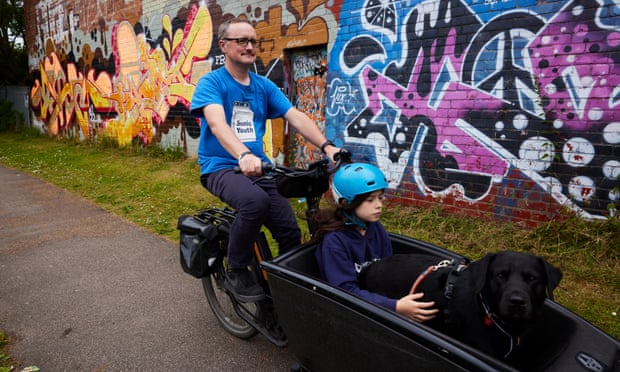
“It’s just fun,” says Killian O’Brien who bought a cargo bike a year ago as a way to go green and reduce costs by getting rid of the family car. “You feel good being out in the fresh air and getting exercise without consciously exercising.”
On his trips to do the shopping or take his daughters to gym classes near his home in Stretford, Greater Manchester, O’Brien now sees more and more folk riding similar set-ups while non-riders are always coming up to ask questions. “We get lots of conversations. Especially if the kids are in the front looking cute, or the dog.”
Cargo bikes usually feature a tub or platform that can be used to carry goods or people, balanced on two or more heavy-duty wheels. O’Brien is among several thousand private individuals who have bought one in the past year, helping almost double sales in the five months to the end of May, according to the Bicycle Association.
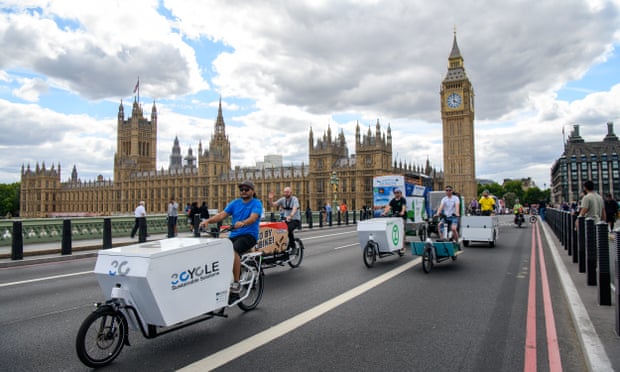
That comes after more than 40% growth last year and despite a general downturn in overall bike sales, which have slipped after the boom enjoyed during the pandemic lockdowns.
Dan Parsons, from retailer Fully Charged in London, said he was selling dozens of cargo bikes a week to a mix of private individuals and businesses despite sometimes long waits for orders because of post-Brexit import issues and shortages of some parts, including battery packs and chips.
Cargo bikes don’t come cheap, with prices ranging from about £2,000 for a new bike without electrical assist to more than £5,000 for the more deluxe models. Parsons said:
.css-zfs0u8{height:1em;width:1.5em;margin-right:3px;vertical-align:baseline;fill:#BB3B80;}“We have an embarrassingly large order book. We used to be able to get a bike next day now it takes five to 10 days. If we could get more we could sell more.”
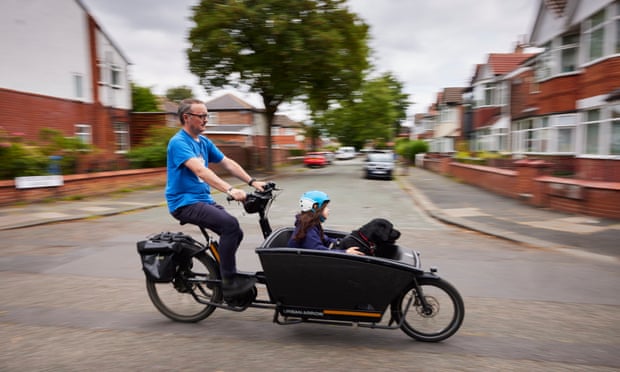
Andy Holme from Warlands cycle shop in Oxford said he has seen a “gentle climb” in sales of cargo bikes about eight years ago he maybe sold two in a year but now it’s as many as one a week, despite tougher competition from online and high street rivals. He credits Oxford’s traffic-clogged streets for the rise in interest, with most buyers being parents looking for an alternative for the school run and shopping trips.
“Interest is definitely increasing. It’s fashionable as you can see as all the big boys like Raleigh, Ridgeback and Cube have started doing cargo bikes. The more people are seen doing it the more chance someone driving past in their car and think, ‘I might do that.’
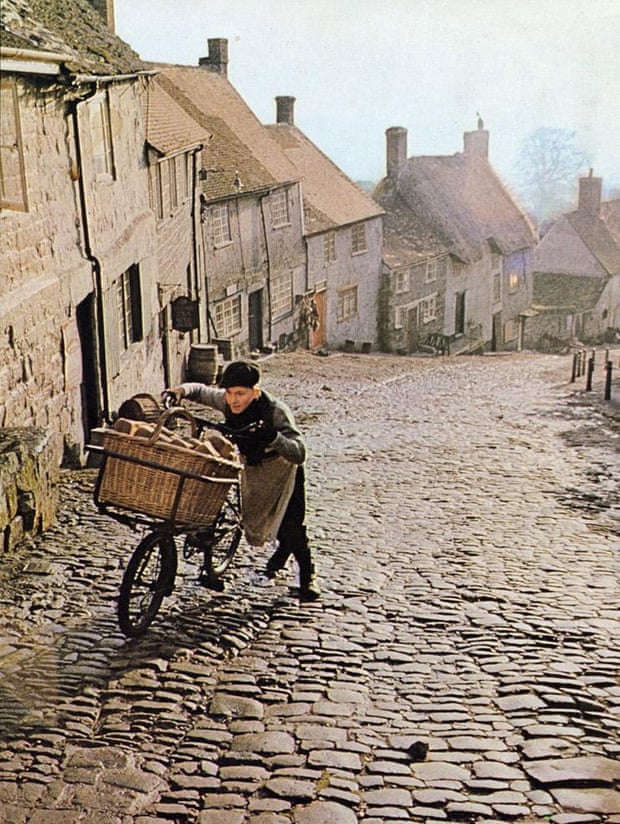
“Overall people are rethinking how they are moving things around and shopping and how much time they are spending in their car. A lot of it is convenience. One of my customers said he had got one and a half hours of his day back by having a cargo bike.”
READ RELATED: "Make America sane again": Rupert Murdoch's New York Post urges GOP to move on from Trump
Richard Armitage at Manchester Bikes says his sales of cargo bikes are up 50% year on year, despite what he describes as the “glacial pace” of setting up cycling infrastructure in the city.
The Bicycle Association figures do not include businesses or individuals who buy direct from suppliers, such as Urban Arrow, Tern, Bakfiets and Babboe, who have seen a surge in interest as cities around the UK – from Birmingham and Glasgow to London – introduce low-emission zones which levy charges on fossil fuel-reliant van and car drivers.
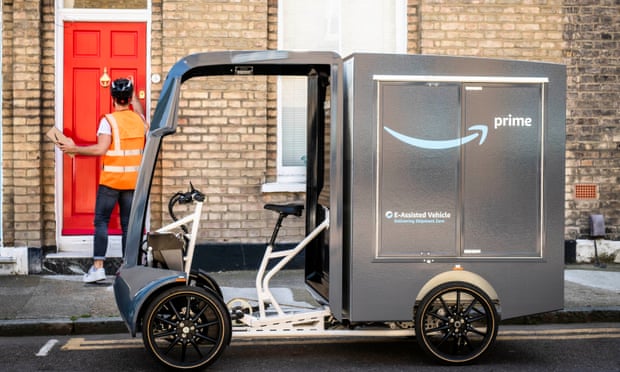
Signs that the trend is going mainstream emerged this week as Amazon announced the opening of its first UK cargo bike delivery hub in Hackney, east London, and pledged several more around the country this year. The US online retailer is following in the footsteps of the Co-op, Ocado and a host of specialist cargo courier firms that have been expanding the use of people-powered transport.
Specialist delivery operator Zedify has more than doubled its fleet, which includes trikes and four-wheeled “quads”, to 122 since 2019 and currently operates in 10 UK cities.
","isTracking":false,"isMainMedia":false,"source":"The Guardian","sourceDomain":"theguardian.com"}”>
The company, which this week teamed up with major logistics group Evri (formerly Hermes) to test out an e-cargo bike hub in Bristol, is expecting to have more than 1,000 bikes in operation within the next couple of years as it aims to operate in 45 cities by 2025, delivering for the likes of Blackwell’s bookshops and Freddie’s Flowers.
Rob King, the chief executive of Zedify, said: “The cargo bike is one of those things which fundamentally has hit its time. How cities are moving, restricting vehicles, has allowed new operating methods.”
He said consumer expectations on more sustainable deliveries and rising petrol costs had spurred on change.
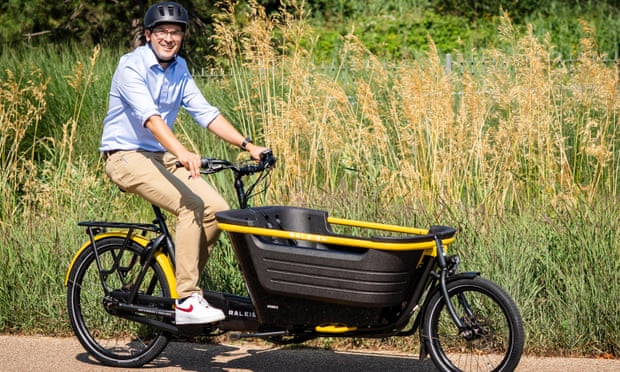
Pedal Me, which now operates 90 bikes in London compared with about 50 in 2019, said it saw a surge in demand as the UK exited lockdown. The company is this year aiming to double its fleet, which delivers large items from office furniture and empty beer kegs to care packages for those shielding during the pandemic.
Ben Knowles at Pedal Me said that customers “come to us in the first instance as they like the idea of using bikes and think there’s a PR angle but the reason they stay is because it is just cheaper. Cargo bikes are more efficient way of doing business.”
The Bicycle Association says up to 30% of delivery and service trips currently done by vans and lorries in towns and cities could be replaced and has called on the UK government to provide subsidies to help businesses make the switch.
Source: Health & wellbeing | The Guardian





